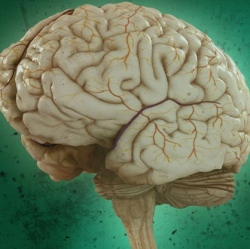
What are GLP-1 peptides and why are they so important? These peptides are amino acids that regulate eating behaviour, among other things. They are also the ones that let the brain know when we are satisfied and that we should stop eating.
“The mice in which the GLP-1 deficiency was induced ate beyond the need for calories and showed an increase preference for high fat food,” says Vincent Mirabella, the co-author of the study. “Conversely when we enhanced GLP-1 signaling in the brains of mice we were able to block the preference of high fat foods.”
This study indicates that rather than focusing on a whole body treatment, the focus should be on targeting neurons in the mesolimbic dopamine system as this can cause fewer side effects. For example, the FDA has recently approved a drug that mimics the GLP-1 hormone for treating obesity. This drug is injectable and targets the whole body, but it can cause severe side-effects like kidney problems and pancreatitis.
On the other hand, the study showed that activating the GLP-1 hormone can inhibit the neuron communication that control reward behaviours, among others, eating. When the hormone was activated, the mice ate much less food and also didn’t prefer high fat foods over regular food.
